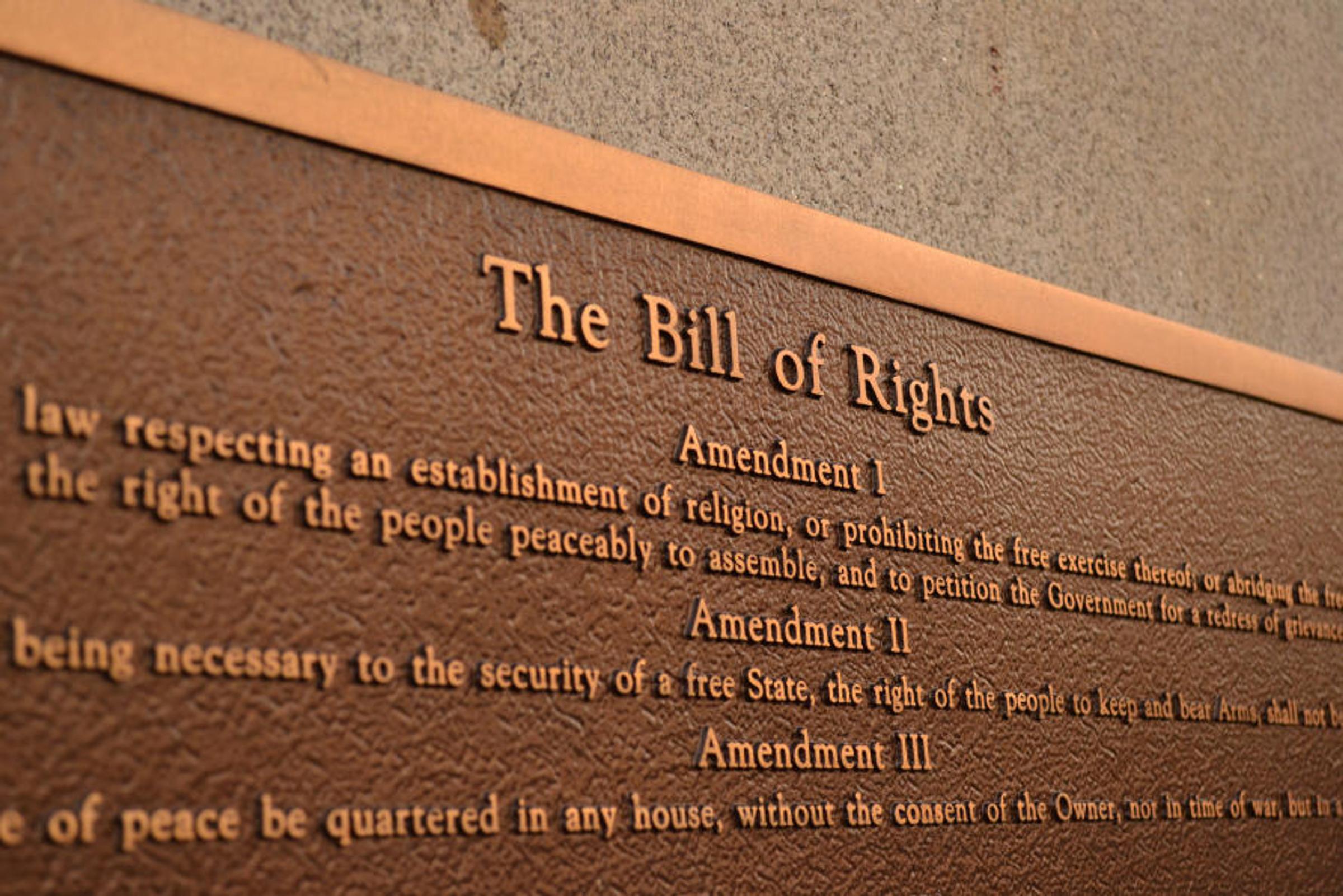HUMANITIES

YEAR 11 LEGAL STUDIES
LETTERS TO THE EDITOR
Should Australia Adopt a Bill of Rights?
Australia has within its Constitution five express rights, one implied right and a variety of ways to protect human rights such as the separation of power, statute law and common law. However, the question we must ask ourselves is whether that’s enough. When we compare Australia to the United States of America, we can see that the current system Australia uses is not effective enough as there are limited express rights, not enough education and outdated rights that don’t affect the average modern Australian. We need to have our own Bill of Rights.
The Bill of Rights is a section in America’s Constitution that is devoted to protecting human rights, with a long list of express rights that have a broad application. This is different in Australia where there are only five express rights scattered in the Constitution that can only be implemented in limited circumstances. For example, section 80 of the Australian Constitution, a right to a jury trial only applies to Commonwealth indictable offences, yet most criminal laws are made by the states. It would be beneficial for Australia to have a Bill of Rights so that we can have more express rights.
A Bill Of Rights for Australia would be exceptional because it would ensure more Australians are aware of their rights. Many people are aware of the express rights in America’s Bill of Rights: for example, the First Amendment, which protects free speech and the Fifth Amendment, which protects a person’s right to remain silent. These express rights are well known throughout the world, let alone just America where they are implemented. This suggests that if a Bill of Rights was created in Australia, then Australians would become more aware of their rights. Interestingly, in an Amnesty International survey in 2006, 61% of responders believed that Australia’s human rights were protected by a Bill of Rights and 26% were unsure. This shows that Australian’s are unaware of their rights and how they are protected. Clearly, the best answer would be to have a Bill of Rights to educate Australians.
Australia’s Constitution needs new expressed rights to be more relevant to modern Australians and to protect minorities. The Australian Human Rights Commission has declared some key rights are not currently protected in Australia such as the right to free speech and the right to legal representation. A Bill of Rights would address this issue as the lives of average Australians would improve. There was an attempt to create an Australia Bill of Rights, The Australian Bill of Rights Bill 2017, however, it did not proceed. This Bill of Rights created and protected key rights such as the right to adequate child care, the right to education, and the right to an adequate standard of living. These new express rights would have benefitted the vulnerable groups identified by the Australian Human Rights Commission.
Australia would benefit highly from having its own Bill of Rights, a new section in our Constitution that could improve the daily lives of all Australians. It would create new express rights, educate Australians and improve the content of Australia’s express rights. We need to have our own Bill of Rights.
Zoe James
Year 10 Student
The need for a Federal Charter of Human Rights
Dear Editor,
Currently, we have very few rights embedded in our Constitution and therefore we have become increasingly dependent on our parliament to protect our human rights. However, our world is becoming more divided, meaning that many Australians are increasingly being misrepresented. This is especially evident in Australia’s decade-long mistreatment of refugees.
In Australia, human rights are protected in several ways: we have a Constitution with five express rights embedded within its chapters, we have statute laws enacted by the parliament which makes certain behaviours (racial discrimination) illegal, we have common laws established by the courts when setting precedent and we have been signatories on treaties and declarations which uphold human rights.
On face value it appears that we have a robust and equitable system in place, however upon a more strenuous analysis, it can easily be seen that our system is flawed in several ways: our Constitution is outdated and has few rights, we are over reliant on the parliament, changes to the Constitution are usually unsuccessful and the Courts are inaccessible for many Australians.
Our Constitution was established in 1901, hence its contents have not evolved with the modern world. The Constitution only awards Australians with five entrenched rights, being: the right to freedom of religion, the right to free interstate travel, the right to not be discriminated upon state of residence, the right to a jury for indictable Commonwealth offences and the right to ‘just terms’ when the Commonwealth acquires property. The Constitution also has an implied right to freedom of political communication, however this only protects Australians, when communicating on the political structure of Australia.
If the parliament enacts legislation that breaches these rights, then a plaintiff (with standing) can challenge this legislation to the High Court, which occurred in Roach v Australian Electoral Commision [2007]. However, this system is flawed as challenging to the High Court is both costly and time exhaustive, which renders it nearly impossible for low-income Australians to challenge. Additionally, we are reliant on the parliament to do the right thing and not pass legislation which breaches human rights, but this just isn’t healthy. The parliament is the supreme law-making body, meaning they have the greatest authority in Australia. Therefore they can easily abolish rights through amending past legislation which protects rights and they can also pass new legislation which diminishes rights and targets minorities.
So, what is the solution? Some argue for additional rights to be added to the Constitution. However, there are too many obstacles in place, which prevent it from being a viable solution. A Constitution does not evolve with time and the referendum process required for it to change is usually unsuccessful and costly. Instead a Charter of Human Rights, similar to that of Victoria’s Charter for Human Rights and Responsibilities [2006], is a more feasible solution. A Charter would not prevent human rights breaches, however it would require the parliament to debate the compatibility of all new bills in relation to the Charter, which would make the legislative process more public, leading to more awareness and greater ministerial accountability.
We need change in Australia and that change should come in the form of a Charter of Human Rights.
Yours Sincerely,
Ryan Borowitz
Year 10 Student
